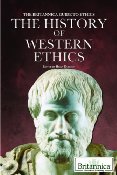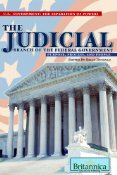Ethan Allen: His Life and Times by Willard Sterne Randall

November 28, 2011 1 Comment
The Glamour of Knowledge and Dangers of Intellectual Servitude
Amy Lutz of the blog, The Young Federalist, guest posts at WWTFT. Ignorance might be bliss in the short run, but enables tyranny in the long term. If we are ever to stop the ever over-reaching authority of the federal government from expanding exponentially, we must first look at ourselves. Americans must wield the power of knowledge and use it to prevent intellectual servitude.
November 28, 2011 No Comments
Happy Thanksgiving
In this, the season of our discontent, we are reminded of why we should be thankful. At the top of the list is that we live in America. Whether our progenitors arrived on the Mayflower or were among one of the later waves of immigrants, we should be grateful just to be here.
November 24, 2011 6 Comments
The History of Western Ethics; Thinkers and Theories in Ethics produced by Britannica

November 23, 2011 2 Comments
The Founders on Liberty and Freedom
The Founders viewed Liberty and Freedom as two very different concepts. In their view, Freedom is something that man can grant to his fellow man, but Liberty is derived from a higher authority. Every human is endowed with natural rights and the free exercise of those rights is called liberty. On the other hand, a person released from slavery or indentured servitude obtains his freedom from the person or persons releasing them from bondage.
November 22, 2011 1 Comment
The Founders on a Living Constitution
The Founders believed that the Constitution was a legally binding agreement between Americans and their government. Here are some quotes contrasting the views of some of the document's framers with that of some politicos of more recent times.
November 21, 2011 19 Comments
The Mob and Freedom of The Press
The country was deeply divided about the prudence of declaring war on Britain in 1812. Alexander Contee Hanson published some articles in his newspaper, The Federal Republican, that were severely critical of President Madison and sharply questioned the wisdom of declaring war on the world's most powerful nation.
November 18, 2011 No Comments
The Bare Necessities
A 1990 FCC mandated program to provide discounted or free telephone service to income-eligible consumers was expanded a few years ago to include cell phones. This is yet another entitlement program which redefines the word "necessity" on the taxpayer's dime.
November 17, 2011 4 Comments
The Founders on First Principles
The Enlightenment concepts of first principles and natural rights were important to the Founders. They served as the basis for the Declaration of Independence, Constitution, and many other founding documents.
November 16, 2011 2 Comments
Separation of Powers by Britannica and Rosen Educational Services

November 14, 2011 No Comments

 The posts are coming!
The posts are coming!

